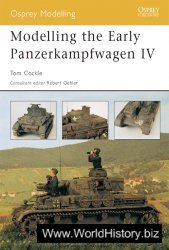Historical, archaeological, and ethnoarchaeological approaches to the ancient countryside are brought together in Horden and Purcell’s sweeping account of long-term history of the Mediterranean, The Corrupting Sea (2000). Using an ecological premise, a range of misconceptions is systematically refuted. For example, three common stereotypes of Mediterranean peasantries are subsistence (autarky), selfdetermination (social independence), and immemorial stability (successful resistance to change); in other words, self-sufficient citizen-farmers, morally uncorrupted by urban vice or social dependency. Horden and Purcell dismiss each aspect of this interpretation, arguing it derives from romantic notions of peasant societies and normative readings of texts. In reality, self-sufficiency in the Mediterranean was suicidal; farmers had to produce a good surplus to allow for the inevitable famine. These strategies involved not simply producing more, but also the storage and redistribution of the surplus, whether through markets or social networks. Inevitably, this surplus and the insurance it offered were appropriated by the powerful, leading to dependency and socio-economic reorganization. Fragmented topography did not impede the exchange of this surplus, as Finley (1973) argued, in fact it demanded the greater mobility of people and goods between regions of glut and famine. Hence, from an ecological perspective, no individual or community was truly isolated, and connectivity ensured that no society could successfully resist change (further on the Mediterranean, Hitchner, the mediterranean and the history of antiquity).
These misconceptions of the Mediterranean peasant have been critical to an understanding of the ancient countryside, so their rejection has broader implications. For example, the assumption that farms were socially and economically autarkic has led to specific readings of the evidence. Discussing Campania, Jongman (1988) argues that an ox requires 10-12 hectares of fodder per annum. As this is more land than the average peasant owned, agriculture must have been based on human labor, with low returns and poor integration of arable and pastoral strategies. However, this ignores the possibility of pooling resources such as draft animals as part of horizontal or vertical relationships, and the importance of common land (Evans 1980; Lirb 1993).
Horden and Purcell’s ecological approach is part of their broader aim to “ruralize” history. By this, they do not simply intend to view the ancient world through a rural lens, but a more radical effort to eliminate the category of “town” altogether. Instead they envisage a spectrum, from peasant farm through to imperial capital, based on the same ecological strategies of diversification, storage and redistribution. In other words, they argue for a purely quantitative rather than qualitative difference between town and country. However, towns are only an extraneous category because of their irrelevance to Horden and Purcell’s purely ecological argument (Fentress and Fentress 2001; W. Harris 2005: 1-42). In this sense, The Corrupting Sea does not help us to understand the distinctive qualities of either urban or rural life.




 World History
World History









